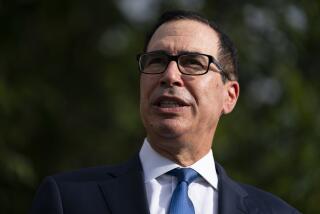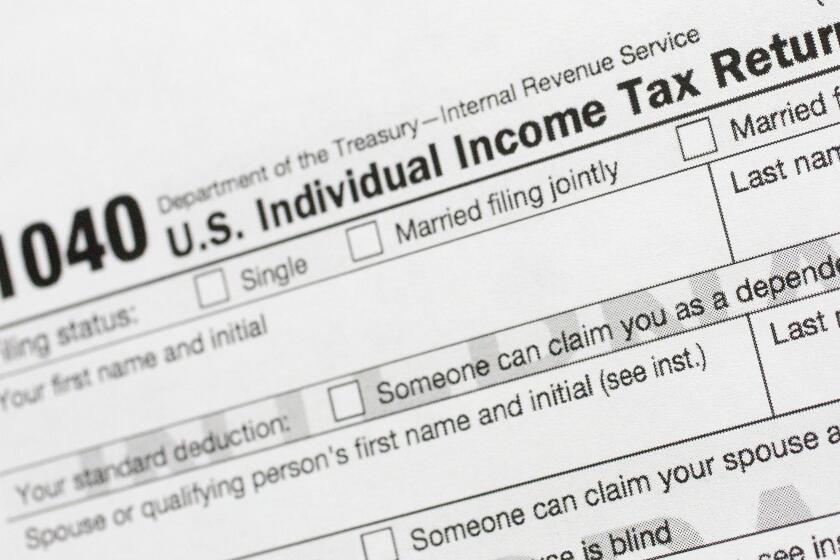Bigger than Facebook? Chinese tech giant Alibaba plans U.S. IPO

Chinese e-commerce giant Alibaba is planning its U.S. IPO next week, slated to be the largest tech IPO this year.
The largest tech IPO of the year will come from a company that many Americans have never heard of.
Alibaba -- a Chinese e-commerce behemoth that produces more sales and net income than Amazon and EBay combined -- has decided to go public in the U.S. after months of speculation that it would list in Hong Kong. The company could raise up to $15 billion at an estimated valuation of up to $200 billion.
“We expect it to be the largest tech IPO ever, the largest IPO of the year, the largest Chinese IPO of the year,” said Max Wolff, chief economist and strategist at Citizen VC. “It’s a big number, probably a record-breaker by any metric.”
PHOTOS: Top 10 tech acquisitions
Alibaba’s initial public offering plans are part of a wave of Chinese companies going public in the U.S. this year. Twitter-like platform Weibo is set to begin trading on the NASDAQ on Thursday and Alibaba rival JD.com filed for a $1.5-billion listing in January.
The prospect of a blockbuster IPO for Alibaba is already igniting the kind of frenzied investor interest that swirled around Facebook in 2012 and Twitter in 2013.
Alibaba is often compared to EBay and PayPal, but its interests are much wider. They include banking, maps, cloud computing, online music service, and TV and film production. The company also has a stake in Weibo, the microblogging platform that is going public in the U.S. this week.
Alibaba was founded in 1999 by a group of 18 people, led by Jack Ma, a former English teacher from Hangzhou, a city near Shanghai. Yahoo was an early investor and still owns about a quarter of the company; Japan’s SoftBank has a substantial 37% share.
When Yahoo reported its quarterly earnings Tuesday, it revealed that revenue at Alibaba surged 66%, to $3.06 billion, in the fourth quarter compared with a year earlier. Its net income more than doubled to $1.36 billion.
That makes Yahoo’s 24% stake worth $42 billion -- more than Yahoo’s own market capitalization, according to an estimate by private company financial intelligence provider PrivCo.
PHOTOS: 10 gadgets we hope to see in 2014
“Yahoo made a huge and, in retrospect, very smart investment in Alibaba when Alibaba was very small and Yahoo wasn’t,” Wolff said.
Now the reverse is true: Yahoo’s dominance has faded, and Alibaba has grown into a global powerhouse.
Going public in the U.S. has become an attractive option for Chinese companies, particularly those in tech. Stock exchanges in mainland China are struggling and subject to restrictive controls, including a 10% daily limit on how much a stock can gain or lose after the first day of trading.
Traditionally, many IPOs in China start off strong, with huge first days, only to rapidly lose ground, said Josef Schuster, founder of IPO research and investment house IPOX Schuster in Chicago.
China implemented a yearlong moratorium on IPOs in 2012 to improve its process, including new rules and greater transparency. Although it lifted the ban at the beginning of the year, China’s markets face a backlog of several hundred companies waiting to go public.
Alibaba seriously weighed a listing in Hong Kong for months. But the company wanted to allow its founders and top management to nominate most board members despite holding a minority stake. The Hong Kong stock exchange refused to grant the exemption because the Securities and Futures Commission felt it would violate the one-share-one-vote principle.
In the U.S., Alibaba’s top 28 partners -- who collectively own a roughly 10% stake in the company -- would have the right to nominate the majority of the board, which would then be subject to a shareholder vote.
Also tipping the scales in the U.S.’ favor: American exchanges offer a better trading infrastructure and valuations that are typically higher than in Hong Kong or mainland China, Schuster said.
Chinese companies prepping to go public are also encouraged by the trading gains of several recent companies that have chosen to list outside of mainland China, Schuster said.
His IPOX China Composite Index, which tracks the performance of Chinese companies that were listed in the U.S., Hong Kong and Taiwan during the last four years, has increased about 16% in the last year.
“Chinese firms are taking advantage of the U.S. market right now because the IPO market has been quite hot,” Schuster said. “The fact that you have seen so many huge winners just increases the confidence about future IPOs out of China going public here. We believe the quality of the average deal is really going to go up.”
Still, Alibaba has not counted out the possibility of one day filing in China. The group previously listed shares of one of its businesses in Hong Kong but delisted in 2012 because of a depressed stock price.
In a blog post last month announcing its plans to go public in the U.S., Alibaba said a U.S. IPO “will make us a more global company and enhance the company’s transparency, as well as allow the company to continue to pursue our long-term vision and ideals.
“Should circumstances permit in the future, we will be constructive toward extending our public status in the China capital market in order to share our growth with the people of China.”
Alibaba spokeswoman Ashley Zandy declined to comment this week on whether the company had hired banks to manage the deal, decided on an exchange or set a timeline to file. Analysts are predicting the company will go public in the fall.
In the last few months, Alibaba has been busy scooping up majority and minority stakes in companies to bulk up its portfolio before going public.
Last month the group announced it would invest about $692 million in Chinese department store chain Intime Retail Group to grow its presence in the bricks-and-mortar space. It also led a $280-million round of financing for messaging app Tango. More recently it acquired mapping and navigation company AutoNavi.
“Ultimately the idea becomes trying to control an entire industry chain,” said Mark Natkin, founder and managing director of Marbridge Consulting in Beijing. “What they’ll look like in 10 years is a heavily integrated ecosystem, which may have a goal of preventing its users from needing to leave for anything else.”
Going public in the U.S. will also give Alibaba some brand recognition in the world’s No. 1 economy. In China, Alibaba has already become an essential part of many people’s lives.
Hu Jinwei, 30, of Wenzhou runs a shop on Taobao, Alibaba’s biggest website and China’s largest consumer-to-consumer online shopping platform. He peddles cell phones, Bose stereos and other products that he buys in the U.S. and resells to Chinese consumers.
Hu got started with Taobao about a decade ago after being unable to generate enough sales through his own website. Alibaba, he says, has had a “huge impact on my life.”
Hu said he really didn’t understand why so many Chinese Internet companies wanted to do their IPOs in the U.S. “But if they can raise cash in America and use it to serve Chinese customers,” he said, “that’s good.”
ALSO:
Alibaba said to plan for IPO as soon as April
Yahoo investors disappointed by slowing Alibaba growth
Twitter: @byandreachang, @JulieMakLAT
Chang reported from Los Angeles and Makinen from Beijing.
Tommy Yang in the Times’ Beijing bureau contributed to this report.
More to Read
Inside the business of entertainment
The Wide Shot brings you news, analysis and insights on everything from streaming wars to production — and what it all means for the future.
You may occasionally receive promotional content from the Los Angeles Times.











